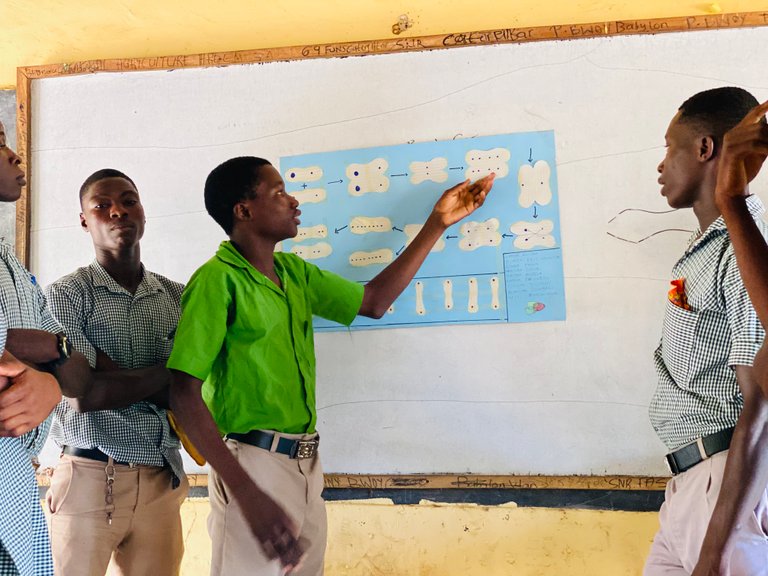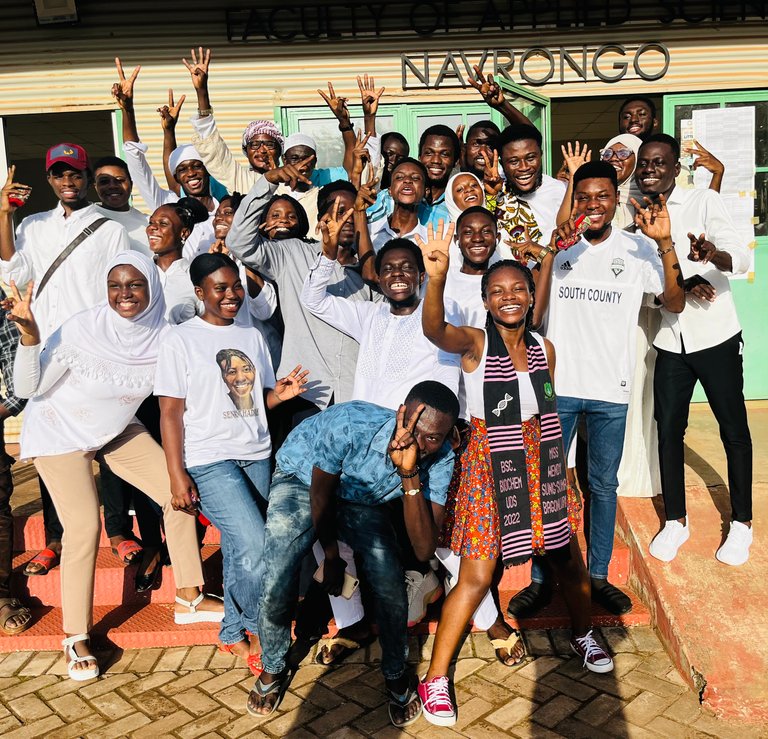Pulling Academic Comebacks Last Minute

One of my least favorite things about Uni was exam. And it wasn’t cos I was stupid or anything, more because I didn’t develop a great plan to study before exam came.
The biggest mistake I made was waiting to study until exam. In my defense, it’s something that most students do, so it’s not just a me thing.
The good thing was that every semester, after waiting until the very last minute to study, I was still able to make an academic comeback. Lol that’s what’s we call it, right? You know, almost knowing for sure that you’re going to fail this semester, but turning that fate into a pass?
It helped that I knew myself, how I learn best and the best ways to learn for exam. I think this is one of the reasons some very smart students get poor grades - they don’t know how to study. Or perhaps, they DO know how to study, but not for exams. As you probably know, there are different ways to study for different purposes. I’m going to be covering how I studies for exam back in school, and even now sometimes.
Tutorials
I found out how resourceful youtube could be when I got into university. Before, youtube just looked like a place to go to watch funny videos, music videos and movies. But somewhere in I think my second year of Uni when things were starting to get uni-level tough, I discovered I could use youtube for more than I initially did.
Computer science students have this meme about “When you open the coding youtube tutorial and it’s an Indian guy” to show how good indians are with coding. In my case, I watch(ed) Ninja Nerd. And I liked his stuff for very good reason.

I am a visual learner. I get concepts easier when they’re for instance, cartoonised and explained in very relatable ways using creative cartoonery, illustrations and storytelling.
Biochemistry is already a very complex science, and the last thing I wanted was to have to keep imagining the abstract: which is why I loved Ninja Nerd. He found a way to turn the complex Biochemistry most people dreaded into a very casual conversation. It felt like listening to your buddy tutor you.
For example, in his attempts to explain feedback inhibition in the citric acid cycle, he didn’t just mention that Acetyl CoA inhibited the action of pyruvate dehydrogenase, but he’d say something like “Pyruvate Dehydrogenase converts Pyruvate to Acetyl CoA. But here’s the interesting thing: once there is an excess of Acetyl CoA in the pathway, Acetyl CoA will come back to Pyruvate dehydrogenase and be like “dude”, there’s too much of me already, stop making more”.
It was these types of relatable explanations that made me and several other classmates love his tutorials. You could even say we graduated because of him. Lol
Slides over notes
In school, there were two types of lecturers (according to my own classification): Slide lecturers and Note Lecturers. I grouped them according to what material they used to teach. I liked slide lecturers more because the information they brought to class was capped in micro-size, and the classes were more engaging than just dumping pages of pdf of us.

Because of the compact nature of the slides, I used to be able to remember exactly what part of a page what information was. I’m not talking about what page number the slide was, just the specific part of the slide that information was. This way, it was easier to recall information because it felt like I was looking at the slide, but in my head.
Mnemonics for recall
I’m not sure if everyone did this back at Uni, but I formed mnemonics for all the difficult topics or concepts I couldn’t understand. I also did this when I needed to differentiate between 2 very similar ideas of concepts. Or when I had to remember a long string of things like enzymes or substrates in a cycle for instance.
I can’t quite remember an example of a mnemonic I made from my back at school days, but “Citrate Is Krebs’ Starting Subtrate For Making Oxaloacetate” was a mnemonic for remembering the intermediates in the Citric Acid Cycle. This one however, was created by Ninja Nerd. I had a few of my own too though, just feeling lazy of going back to the old days to pick one.
Using Root Words
This one is actually something I still use to today, and I’m even teaching my students to adopt it. It basically involves taking a complex concept or word, identifying the origins of the components of the word, and using your understanding of the components to arise at a meaning for that complex concept. I’ll give an example so you understand.
If I read what glycolysis was, but felt that the definition was too complex for me to chew and recall. I’d do this…
Part 1: The storage form of glucose is glycogen, and so that must be where the “glyco” in glycolysis came from.
Part 2: I also know that in science, “lysis” means breakdown.
Combining, the two concepts, I come to the conclusion that “glycolysis” means the breakdown of glycogen. This is what glycolysis actually is. But now I won’t be chewing to recall because I actually understand what I’m talking about.
If I wanted to understand better, I’d probably ask questions like “What is the glycogen broken down into?” The answer to that is Glucose. And what Glucose is broken down into is Pyruvate.
So now, my modified and full definition of Glycolysis becomes the process by which glycogen is broken down into glucose, and further into pyruvate. This is almost the same as the dictionary definition of Glycolysis.

The course from which the concepts I’m talking about here are from is called Intermediary Metabolism. Most of my course mates hated the course because they saw it as very complex. They were right. It is. But it was because they lacked techniques like mine that they found it difficult.
Sorry about all the biochemistry, and thanks for sticking to the end:)
All images here are mine
Posted Using InLeo Alpha
When I was a teacher It was challenging also teaching this part in the biology programme. I questioned myself many times how deep we should teach that for high schoolers… since most of them wont use Krebs cycle in their lives never again hehhe
You were teaching this to high schoolers? Damn
I learnt these stuff in University myself on my way to a Bachelor of Science in Biochemistry. I don’t think I heard of the Krebs Cycle before University.
I can’t imagine how difficult it must’ve been to get high schoolers to grasp concepts like this. Kudos to you.
Hahahha it is problematic because universities ask this type of topic in the entry tests. But I agree with you… it shouldnt be in high school …
This post has been manually curated by @bhattg from Indiaunited community. Join us on our Discord Server.
Do you know that you can earn a passive income by delegating to @indiaunited. We share more than 100 % of the curation rewards with the delegators in the form of IUC tokens. HP delegators and IUC token holders also get upto 20% additional vote weight.
Here are some handy links for delegations: 100HP, 250HP, 500HP, 1000HP.
100% of the rewards from this comment goes to the curator for their manual curation efforts. Please encourage the curator @bhattg by upvoting this comment and support the community by voting the posts made by @indiaunited.
I was and still am a very forgetful person, I made friends with the best students, and they pulled me along with them, either when I needed help with studying or I was out sick and couldn't do class stuffs and all that.
You need a plan in college, if ones not an A+ student, exam is always very frustrating, I was more of the B or C guy in worst scenarios, but I think I graduate 7 or 8th best out of 140 students or so. It wasn't intelligence, it was street incredulousness.
I had a couple of friends like this too. I had a challenge studying in group, so I chose one person to study with. She was a very smart person, and unlike me, went to class frequently. So she was the one I relied on to get me up to speed when exam was nearing.
140 students? Your class was huge. My class was I think 50 something students, and it was one of the largest in our program’s history so far.
I’m yet to meet someone who doesn’t like Ninja Nerd.😂😂
Biochemistry is already difficult. It’s not like we really had a choice at some point. We just had to get it done.😂
Some people were not lucky enough to find Ninja Nerd in those hard times. Pity😂
😂😂😂 you’re funny
I think knowing how to study is a skill lol. It used to amazed me why students who aced class tests couldn't do the same during exams. Using root words is the one I'm familiar with, taking in information in a packed form reduces the volume of study :)